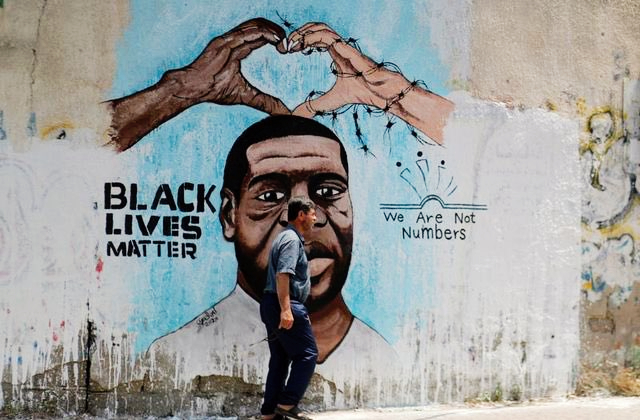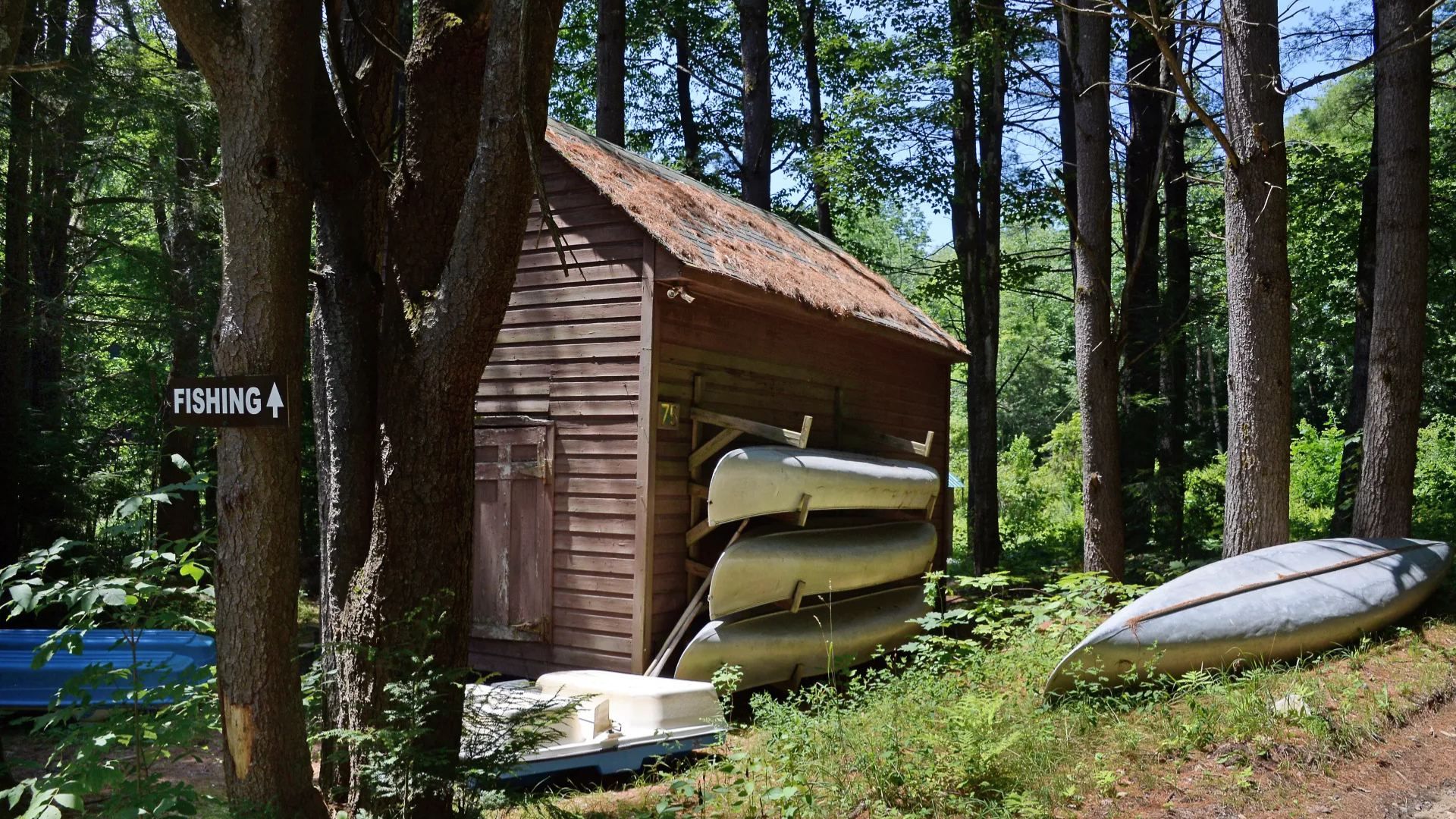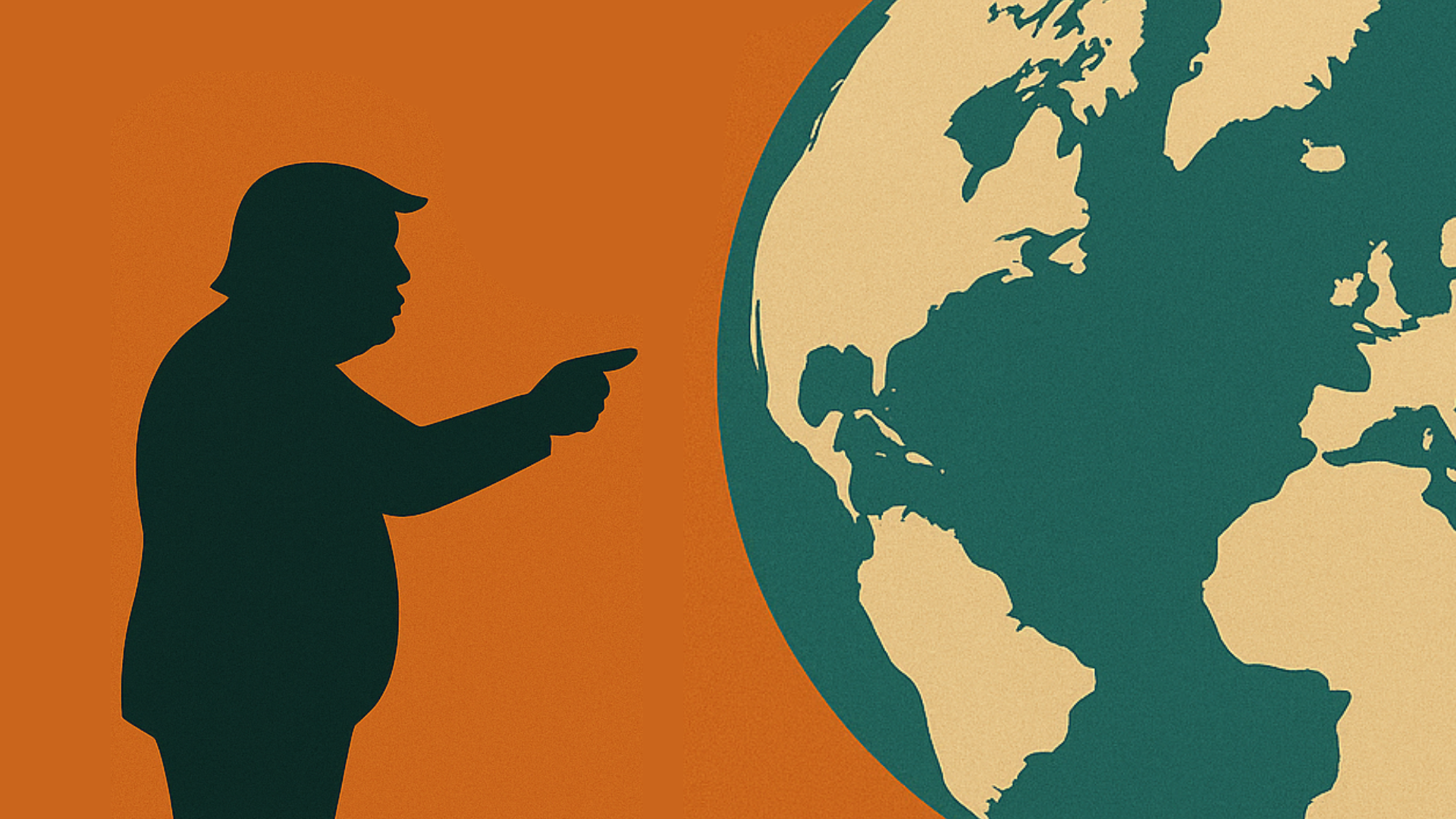

Black-Palestinian solidarity mural depicting George Floyd in Gaza City, 2020. Creative Commons.
Black History Month is a time to celebrate Black excellence and to centre Black scholarship, in addition to the other 11 months of the year.
Associate Professor and UBC History faculty Dr. Crystal Lynn Webster studies the histories of childhood and youth, African American history, and carceral studies. In this Black History Month Q&A, Dr. Webster reminds us that Black excellence has always been deeply rooted in the history of Black activism, liberation, and solidarities around the world. Read on to learn about the long history of solidarity between Black activism and the Global South, and about exciting new research that centres Black histories and experiences in Canada.
What has your experience been like celebrating Black History Month in Vancouver and in Canada?
One of my favourite parts about celebrating Black History Month is being part of expressions of Black history and Black solidarity outside of a U.S. context. It allows me to hold space with Canadian Black communities and local issues, and also to more clearly see and feel Blackness in a global and Diasporic sense.
Black History Month here in Vancouver is not as formalized and institutionalized as it is in other places I’ve lived. Blackness is also fragmented here. Many of us are the only Black people in our departments, units, classes, jobs, etc. For example, I am the first and only Black faculty hired in the Department of History, which has not historically celebrated Black History Month. This puts pressure on me and others to carry the burden of making sure Black History Month is celebrated, even as some places lack the interest and resources to do so.
At the same time, Black History Month is also under siege in many places. In some parts of the U.S., conservatives have launched attacks on school curriculum which highlights African American history and have conflated it with Critical Race Theory, which is its own separate and respected academic field. Regardless, Black people in the United States and Canada have historically celebrated Black history without a formally recognized Black History Month, and they will continue to do so.
Much of your work speaks to African American history and activism in the U.S. What about Black history in Canada?
Like in the U.S., Blackness in Canada is not a monolith. I believe activism varies depending on the local communities and regions, as well as varying histories of slavery and immigration. I know of very exciting work happening in parts of eastern Canada—particularly in communities draw from descendants of slavery and the underground railroad— around memorializing and historicizing slavery. My sense is that there are strong traditions connected to the Caribbean across Canada, but particularly in places with significant Caribbean immigration in Toronto and Montreal.
Here in Western Canada, we have a history of a Black community in Hogan’s Alley, which the City of Vancouver displaced in 1970. There is also significant immigration directly from the continent of Africa. These factors shape how and where activism takes place. In this way, I like to broaden what we consider to be activism. While we did see global activism in 2020 in the form of protests against George Floyd’s murder by Derek Chauvin and police brutality, I see much shared between the U.S. and Canada in events that showcase Black, African, and Caribbean culture. These cultural expressions are also activism.
What does solidarity-building look like from a perspective that is rooted in Black histories of liberation?
Black history has been shaped by slavery, colonialism, and white supremacy. This history resulted in the subjugation of Black, Indigenous, and people of colour throughout the Americas and also across the Global South. White supremacy on a global scale endures today through various practices including neo-colonialism, settler-colonialism, prison-industrial complex, and the military-industrial complex. Black liberation will only be realized through the end of white supremacy. It gives us a historical framework to challenge these forces.
Many figures in the Black radical tradition have engaged with Blackness on a global scale, and international coalition movements. In the nineteenth-century, David Walker called for solidarity between Black people in the U.S. and Haiti. W.E.B. Du Bois was involved in the independence movements of countries in Africa. Radical Black women thinkers like those who formed the Combahee River Collective clearly articulated the shared aims of women of the “Third World,” and connected them to the political aims of Black feminist movements. And Black activists, including the Student Nonviolent Coordinating Committee and the Black Panther Party, were early supporters of Palestinian resistance.
As I celebrate Black History Month in 2024, I am especially interested in understanding the ways in which global anti-colonial and anti-racist protests today – including Black Lives Matter, prison abolition, Indigenous sovereignty/land back, Free Palestine, climate justice, and independence/decolonial movements – continue to influence and be influenced by a rich history of the Black freedom struggle and the Black radical tradition.
Are there any particular texts or moments in history you find yourself returning to for inspiration during times of social change?
Right now, I am really inspired by radical Black feminists and abolitionists like Angela Davis. Angela Davis gives us so much to work with and to think through in her books Freedom is a Constant Struggle: Ferguson, Palestine, and the Foundations of a Movement, as well as Are Prisons Obsolete? I am also really inspired by the work and activism of young people who create their own texts through art, music, and social engagement including Mari Copeny, or as she is known by her activism surrounding the Flint, Michigan water crisis, “Little Miss Flint.” And finally, I’m working with Black girls for a SSHRC grant called Mapping Black Girl Geographies and Belonging in Canada, and I continue to be inspired by the girls’ joy and playfulness. This is the project I am most interested in holding and cultivating: the project of Black joy.


Dr. Crystal Lynn Webster is Associate Professor of History at UBC. Her book, Beyond the Boundaries of Childhood: African American Children in the Antebellum North was published in 2021. She is currently writing her second book, Condemned: How America’s First Courts and Prisons Terrorized Black Children. Her public scholarship and presentations focus on the significance of history on Black childhood and contemporary issues including education, incarceration, political activism, and child/family development. Her writing has appeared in the Washington Post, and the New York Times. She is an award-winning historian, educator, and speaker.


